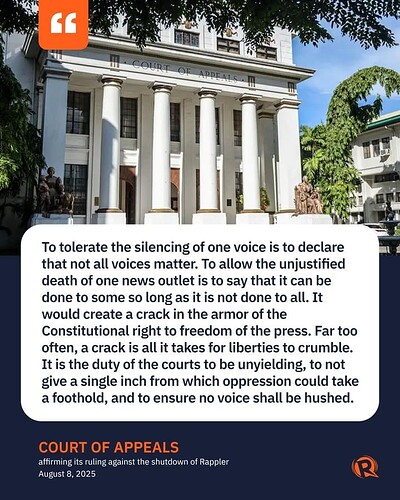The Court of Appeals (CA) upheld its earlier ruling that Rappler is Filipino-owned, rejecting the motion for reconsideration of the Securities and Exchange Commission. The court criticized the SEC for exceeding its authority and misinterpreting the law on foreign ownership. In a strongly worded statement, the CA also underscored the importance of press freedom, warning that tolerating the silencing of one voice could lead to the erosion of liberties for all.
so Philippine Depositary Receipt (PDR) has now become the way to bypass constitutional policy of 100% Filipino owning of companies?
The Court of Appeals (CA) and legal experts, including former Philippine Stock Exchange president Francis Lim, clarified that Philippine Depositary Receipts (PDRs) do not violate the Constitution when structured properly. The Supreme Court’s Gamboa vs. Teves (2011) ruling defined “capital” as shares with voting rights and full ownership, which PDRs do not provide. In Rappler’s case, the CA ruled that Rappler Holdings retained all voting and ownership rights, and Omidyar’s PDRs did not grant control. This supports the use of PDRs by companies like ABS-CBN, as long as they ensure no foreign control.
